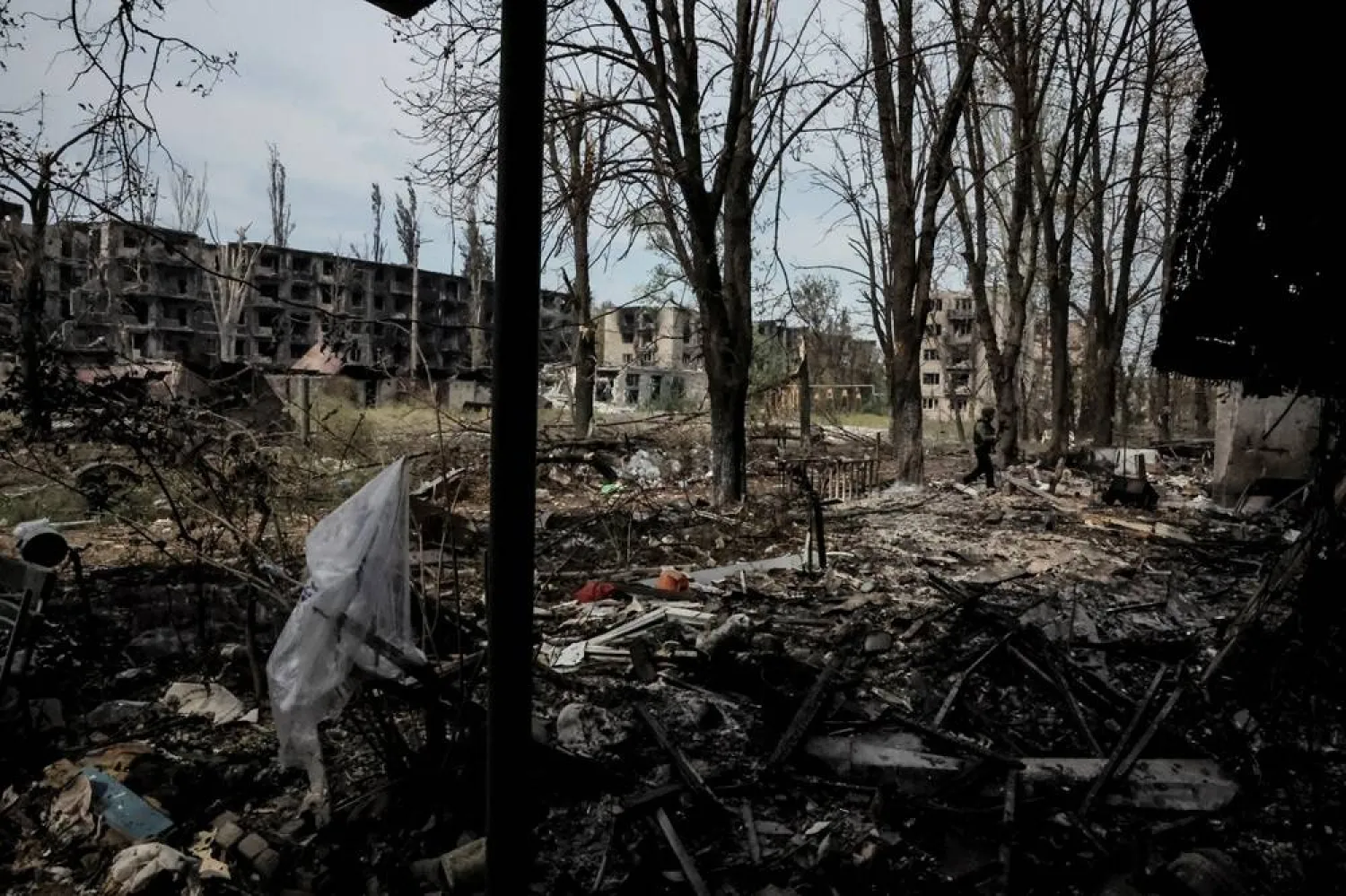At least 50 people were killed and 271 wounded when Russia hit a military institute in Ukraine's central town of Poltava with two ballistic missiles on Tuesday, the war's deadliest single attack this year.
Photographs posted on social media showed several bodies of young men on the ground covered in dust and debris, with the badly damaged side of a large building behind them. Reuters could not immediately verify the images.
"The Russian scum will definitely be held accountable for this strike," President Volodymyr Zelenskiy said on the Telegram messaging app.
He ordered a full and prompt investigation, saying the strike damaged a building of the Military Institute of Communications.
The emergency service gave the death toll of 50; other officials said 51 were killed. A further 15 people may still be under the rubble, according to Poltava regional governor Filip Pronin.
Ukraine's land forces said military personnel had been killed. They did not specify how many of the victims were from the armed forces, but the attack was a major blow to Kyiv as it tries to bolster its ranks to hold off a more powerful enemy.
"The Land Forces Command is conducting an investigation to determine whether enough was done to protect the lives and health of the soldiers at the facility," a statement said.
The use of ballistic missiles - which hit targets hundreds of kilometers away within a few minutes of their launch - meant the victims had little time to find cover after the air raid siren sounded, the foreign ministry said.
"This is a stunning tragedy for all of Ukraine. The enemy hit an educational institution and a hospital," Ukraine's first lady, Olena Zelenska, wrote on X.
Some Ukrainians left worried messages on the institute's Facebook page seeking information about their loved ones.
"One of the institute's buildings was partially destroyed, and many people were trapped under the rubble," the defense ministry said on Telegram.
"Thanks to the coordinated work of rescuers and medics, 25 people were rescued, 11 of whom were taken from the rubble. The rescuers are currently continuing their work."
Russia did not immediately comment on the attack.
INCREASE IN MISSILE STRIKES
Russia has intensified its missile and drone attacks on Ukraine two-and-a-half years into the full-scale war.
Last week Ukraine was pummeled with the heaviest bombardment to date, and on Monday ballistic and cruise missiles targeted Kyiv causing loud explosions.
Ukraine also targeted Russia with more than 158 drones at the weekend, damaging an oil refinery near Moscow and a power station.
Fighting has intensified over the past month, with Russian forces advancing in eastern Ukraine, while Kyiv's troops have mounted their first large-scale cross-border assault into Russia. Moscow has vowed to retaliate for the incursion into the Kursk region.
Zelenskiy repeated calls for more Western air defenses and urged allies to allow their long-range weapons to be used for strikes deeper into Russian territory in order to protect Ukraine.
"We keep telling everyone in the world who has the power to stop this terror: air defense systems and missiles are needed in Ukraine, not in a warehouse somewhere.
"Long-range strikes that can protect us from Russian terror are needed now, not some time later. Unfortunately, every day of delay means loss of life."
In Poltava, some 300 km (186 miles) southeast of Kyiv and 120 km to the nearest Russian border, governor Pronin said about 150 residents had donated blood for the wounded. Local authorities announced three days of mourning.
Defense Ministry spokesman Dmytro Lazutkin told national TV that classes at the institute were underway at the time of the attack. He said the alarm sounded at 09:08 local time (0608 GMT) prompting people to rush the shelter.
"A few minutes after the air alert, explosions sounded," he said, adding that there were no parades going on at the time.
It was not the first time Russia has struck military facilities away from the frontlines causing mass casualties. Russia said in May 2022 that it hit a training ground for reserve forces in the town of Desna where Ukraine said 87 people were killed.
In March that year, 35 people died in a Russian strike on a military base in the country's far west.









